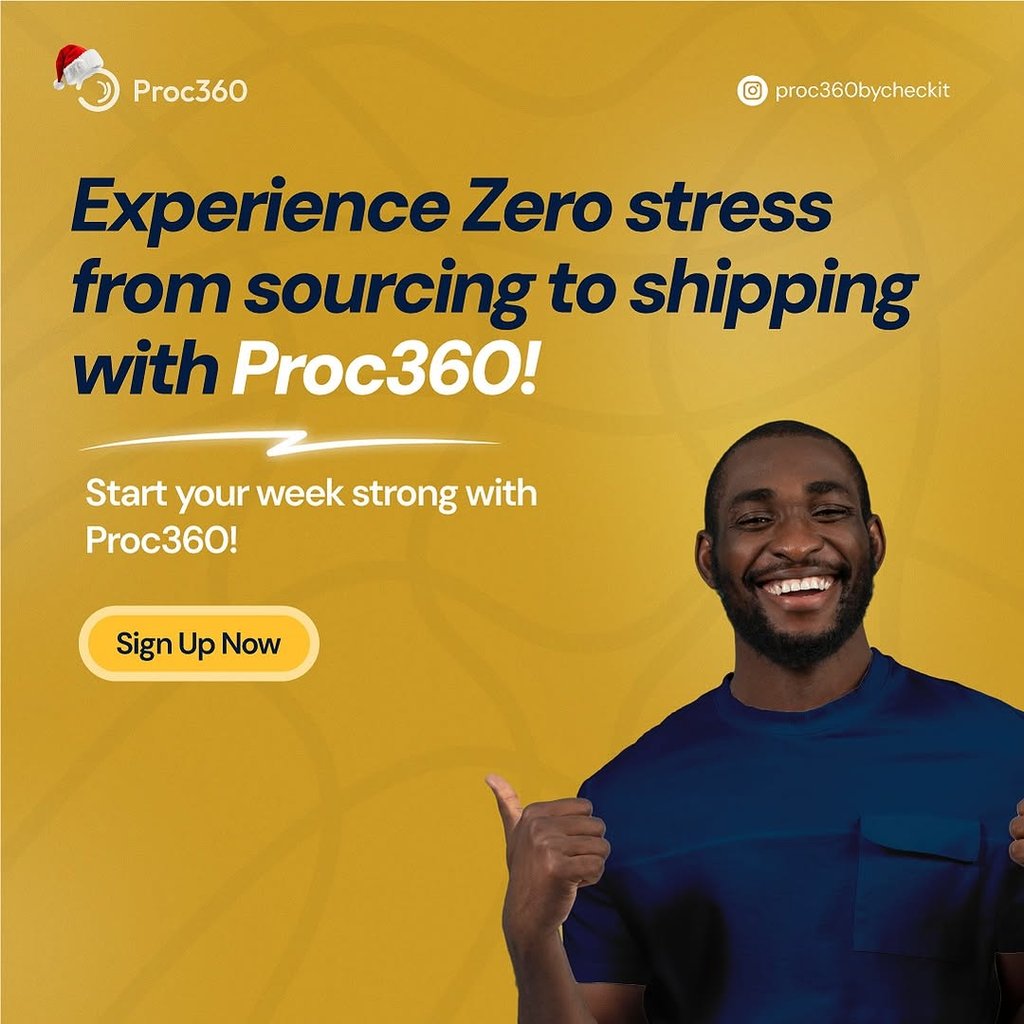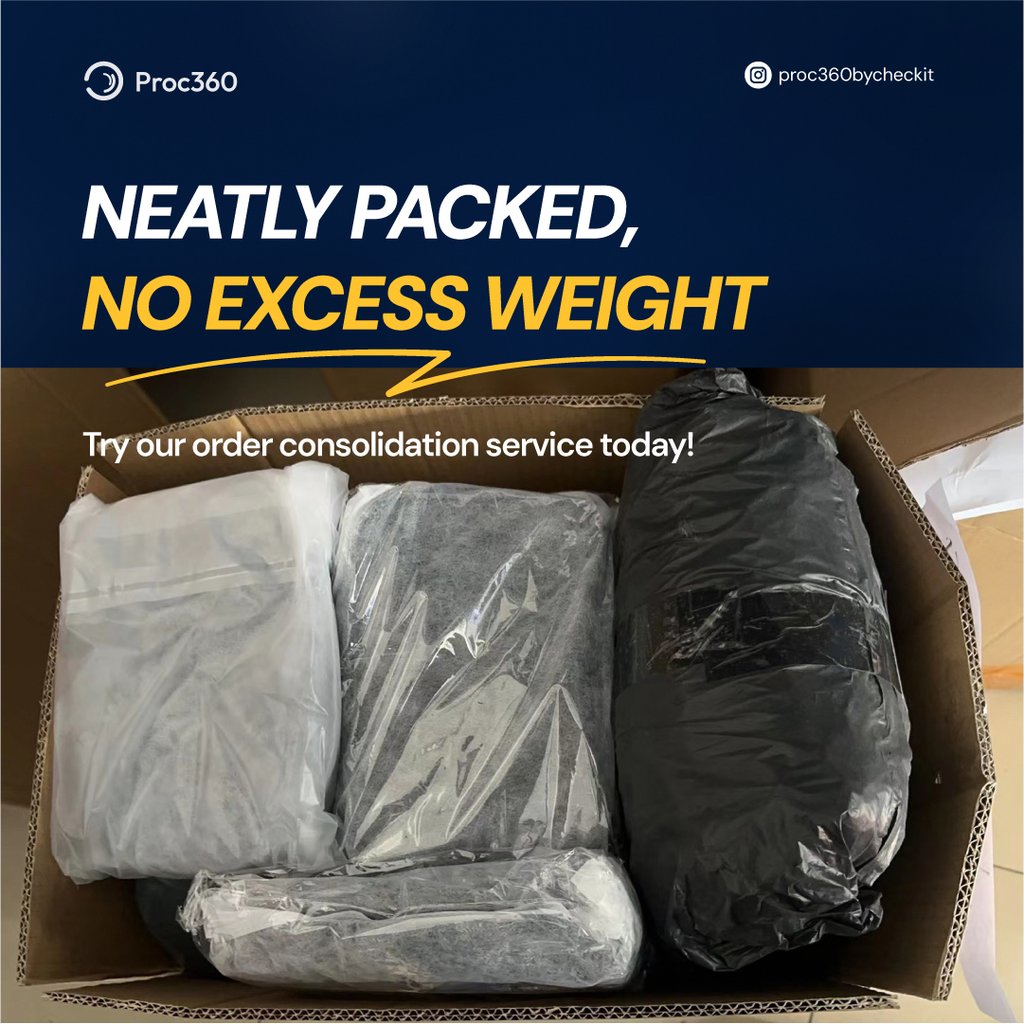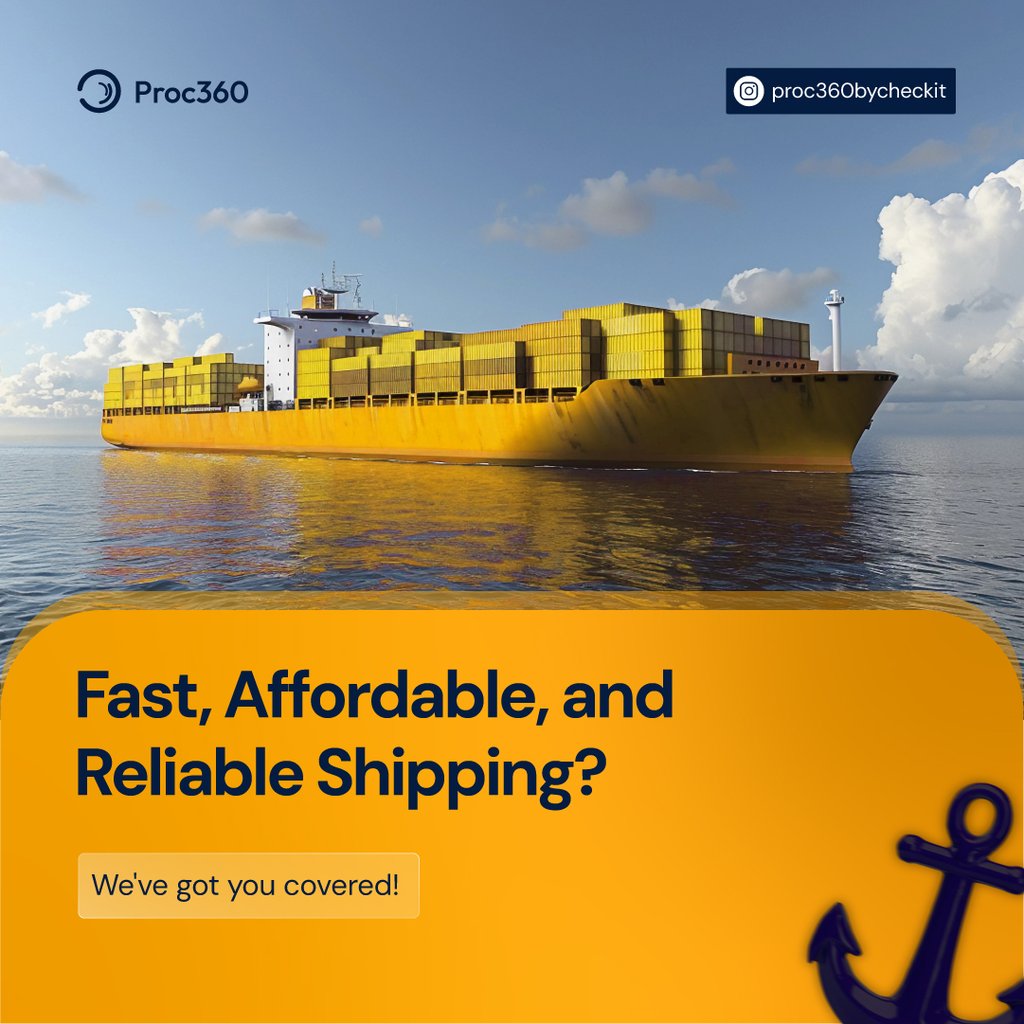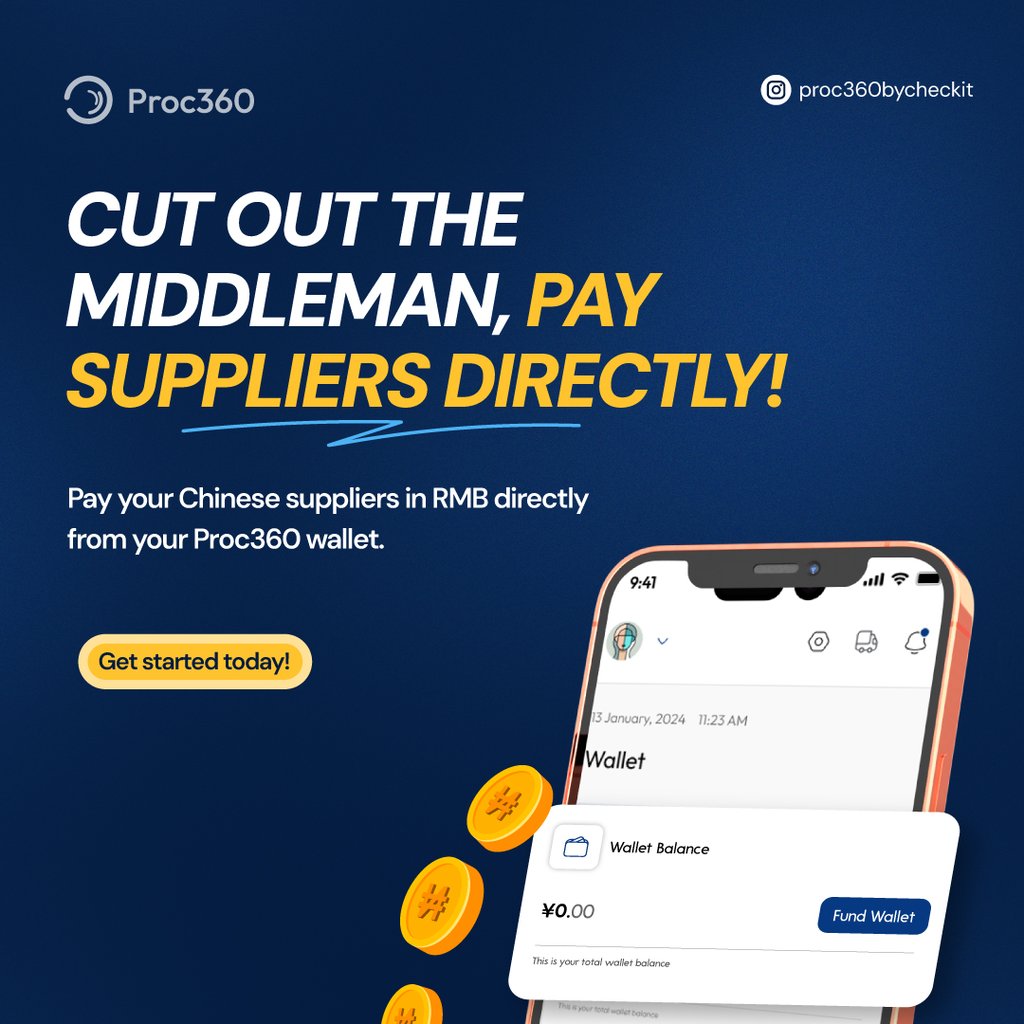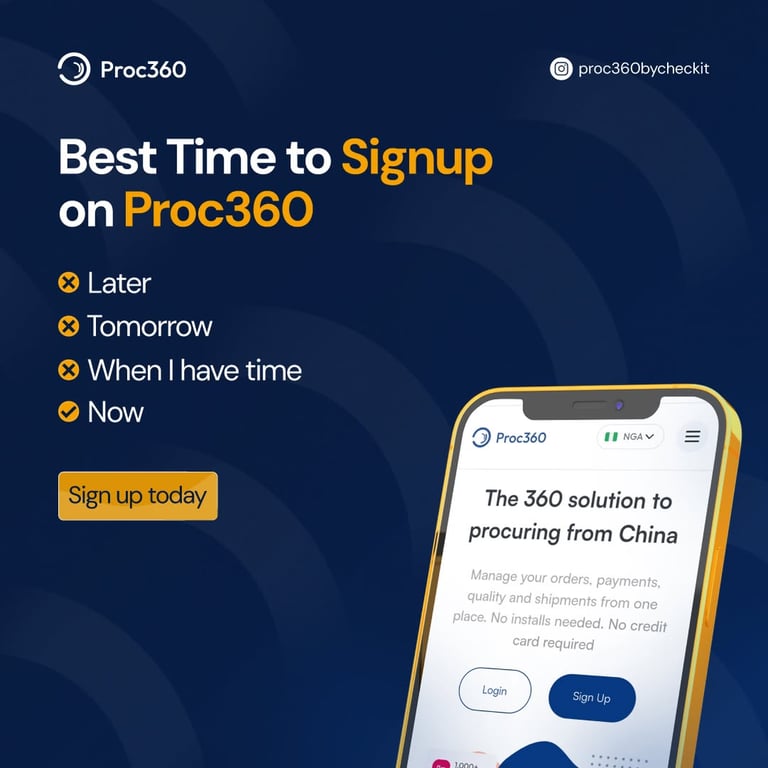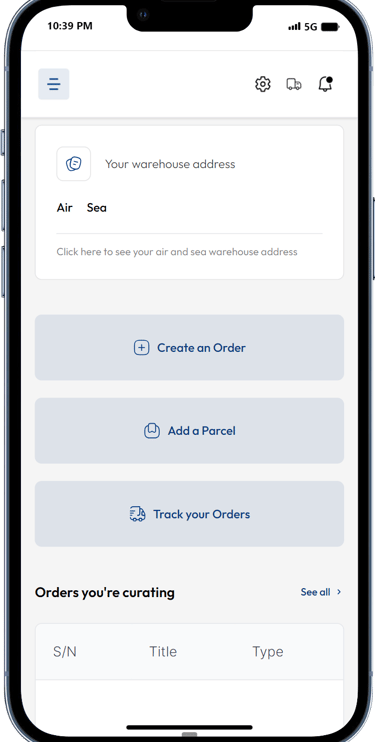How to Find and Partner with the Right Chinese Private Label Manufacturer
Learn how to find and vet the right Chinese private label manufacturer for your business. This guide covers sourcing, factory selection, and how Proc360 simplifies the process for Nigerian and Ghanaian importers.
GROWING BUSINESSGETTING STARTED
Bidemi Oyelola
5/17/20254 min read
Private labeling lets you build a unique brand, control design and quality, and command higher margins. But your success hinges on finding a reliable manufacturer in China—one who can translate your vision into products that delight your customers. Here’s a step‑by‑step guide to sourcing, vetting, and working with Chinese private label partners—plus how Proc360 streamlines each stage of the process.
3. Managing Production & Quality
a. Detailed Product Specifications
Create a tech‑pack or spec sheet covering dimensions, materials, colors, tolerances, and assembly instructions.
b. Sample Review & Approval
Approve first‑article samples before committing to bulk production.
Test functionality, durability, and packaging integrity.
c. Real‑Time Production Oversight
Schedule factory visits or video inspections at key milestones.
Use digital tools (e.g., sample‑shipment tracking, photo logs) to monitor progress.
d. Pre‑Shipment Inspection
Engage a third‑party inspector or conduct your own checks on at least 10% of units.
Verify labeling, packaging, and compliance with destination regulations (e.g., FDA, CE).
1. Identify Where to Source Manufacturers
a. Industry Trade Shows
Why attend? Trade fairs like Canton Fair, Global Sources, or regional exhibitions in Yiwu and Shenzhen bring together hundreds of verified factories.
How to maximize: Book meetings in advance, tour factories in nearby industrial parks, and collect samples on-site.
b. Online B2B Platforms
Major directories: Alibaba, Global Sources, Made‑in‑China.
Niche hubs: For electronics, check HKTDC; for textiles, try Fibre2Fashion.
Tip: Filter by “Gold Supplier” or “Verified Manufacturer,” then review company profiles, transaction history, and onsite audits.
c. Referrals and Industry Networks
Leverage connections: Ask fellow importers, join entrepreneur forums, or tap local business associations in Nigeria and Ghana.
Why it works: First‑hand referrals often lead to higher trust and smoother negotiations.
d. Sourcing Agents & Procurement Platforms
What they offer: Local expertise, factory introductions, and hands‑on support.
Choose wisely: Look for agents with transparent fee structures and a track record of quality control.
2. Vetting & Selecting Your Manufacturer
a. Verify Legal Status
Business license check: Confirm factory name, registered capital, and scope via China’s Industrial and Commercial Administration.
Factory vs. Trading company: Whenever possible, work directly with factories to avoid mark‑ups and ensure production control.
b. Assess Capabilities & Certifications
Production capacity: Can they handle your target volumes and run multiple lines?
Quality standards: Request ISO, CE, FCC, or other relevant certificates.
Sample portfolio: Ask for photos or physical samples of past projects.
c. Define Key Terms Upfront
MOQ & pricing: Understand minimum order quantities, tiered pricing, and payment terms.
Lead times: Clarify sample turnaround, production cycle, and shipping schedules.
Customization: Confirm logo printing, packaging options, and label requirements.
d. Communication & Responsiveness
Language skills: Ensure there’s a clear point of contact fluent in English
Response time: A reliable partner replies within 24 hours and proactively shares updates.
4. Avoiding Common Pitfalls
Intellectual Property Protection
Use non‑disclosure agreements (NDAs) and watermark design files.
Trademark key elements in China to deter copycats.
Hidden Costs & Compliance
Factor in customs duties, anti‑dumping tariffs, and testing fees.
Confirm whether your products require special licenses or lab reports.
Factory Reliability
Beware of “too good to be true” quotes. Extremely low prices can signal substandard materials or hidden fees.
Why Proc360 Is Your Ideal Sourcing Partner
At Proc360, we’ve built a one‑stop platform to simplify every step of private label sourcing from China—so you can focus on growing your brand:
Verified Supplier Network
We connect you directly with vetted factories across electronics, textiles, cosmetics, and more—no trading‑company middlemen.Dedicated Procurement Team
Our on‑ground specialists handle negotiations, sample coordination, and real‑time factory monitoring on your behalf.Integrated Quality Control
From initial sample checks to pre‑shipment inspections, Proc360 enforces rigorous standards and provides detailed reports.Consolidation & Warehousing
Send multiple supplier shipments to your personal Proc360 China address. We safely store your goods up to 60 days and consolidate orders to optimize shipping costs.Multi‑Currency Wallet & Payments
Top up in Naira, Cedis, or Dollars; we manage RMB conversions and pay your suppliers directly—even during Chinese holidays.Flexible Logistics Options
Choose 7‑day air freight or budget‑friendly sea shipping, complete with end‑to‑end tracking from factory floor to your doorstep.Ongoing Support
Our team is available 8 AM–6 PM GMT+1 to answer questions, resolve issues, and adapt your plan as your business evolves.
Ready to Elevate Your Private Label Business?
Partner with Proc360 and turn your product ideas into reality—without the headaches.
Get started for free and experience seamless sourcing, quality assurance, and logistics that power your brand’s growth.

